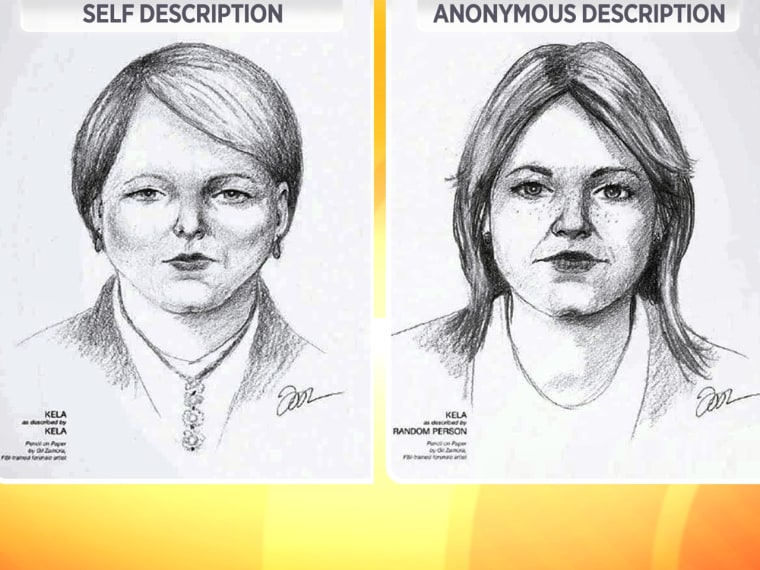Women are often their own harshest beauty critics, and a new Dove ad campaign shows they can also draw the wrong conclusions about themselves — literally.
In the beauty brand's three-minute video, “Real Beauty Sketches,” an FBI-trained forensic artist meets individually with seven women from behind a curtain. He then creates a composite sketch of each woman based on descriptions they provide to his questions.
When asked to describe her chin, one woman responds: “It kind of protrudes a little bit, especially when I smile.”
“I have a pretty big forehead,” volunteers another woman.
“I kind of have a fat, rounder face,” says a third.
Later, the artist draws a second sketch of each woman based on descriptions provided by a stranger each of them had met earlier. His ultimate side-by-side reveal of both sketches drew complete surprise and a range of emotions from his subjects, as they saw that a stranger had described them much more beautifully and kindly than they had described themselves.
Kela Cabrales told TODAY's Kathie Lee Gifford and Hoda Kotb she was completely shocked by the idea that a stranger could more accurately describe her face than she could.
“I had no idea that what I was describing was a person that looked so sad and heavy and this other person, this complete stranger, described me as beautiful and light and happy,” she said.
Cabrales said she wasn’t trying to downplay any of her features when she described them to the artist.
“I was ‘Just the facts, ma’am.’ Totally neutral. I thought I was giving him a very straightforward description. I had no idea it would turn out like that,” she said.
In nearly every case, the self-described portraits depict more severe features and darker expressions. After finally meeting each woman face-to-face to show them his two sketches, artist Gil Zamora asks: “Do you think you’re more beautiful than you say?”
“Some of them teared up. Some of them took a little pause, but all of them said, ‘Yes, definitely,” Zamora told TODAY.com. “I think they really made a connection with what they were saying...It was that they said, ‘You’re showing me, right here, that people do see me differently, and why am I so hard on myself?’”
Zamora said one of his subjects, Florence McLaughlin, spent a lot of time describing a mole on her face that someone had singled out many years ago, and which obviously still bothered her.
“And yet, when I was interviewing the anonymous stranger on her, they really didn’t notice it,” Zamora said. “And when you meet her and you talk to her, I didn’t notice it right away. You really have to look at it. But that was something she really conveyed to me that I had to put on the sketch.”
McLaughlin, whose second sketch is strikingly accurate, acknowledged she now feels different about her appearance following the experiment.
“If I had to do it over again, that’s not how I would describe myself,” she said on TODAY. “I was just trying to give him the details so that he could get it right. Clearly, I learned that I have a microscope up to my face and it’s just not necessary.”
Coming up with the idea behind the “social experiment” recorded in the video was easy, said Fernando Machado, vice president for Unilever’s Dove Skin.
“When you ask a woman to talk about herself, she kind of tends to focus more on the negative than on the positive, but funny how if you ask a women to describe a friend or someone else she will be more positive,” he told TODAY.com. “That all goes back to the fact that women are sometimes their own worst beauty critics. And only four percent of them view themselves as beautiful. So this whole campaign aims to help contribute to change that statistic.”
Reaction to the “Real Beauty Sketches” video has generally been positive, although some question the focus on physical beauty and the lack of ethnic diversity among the women in the video.
“Women AND men get to the point of seeing each other beyond the surface, nothing will change. All your best intentions aren't solving anything here,” wrote one commenter on Ad Week. “You're addressing what we're already aware of and using rail-thin, good-looking women to do it.”
Devon Corneal, a mom blogger for Huffington Post, said she had mixed feelings about the video but found it "moving nonetheless."
A look at the video also can be found on Dove's website, along with both sketch versions of each woman, and video vignettes on the subjects.
